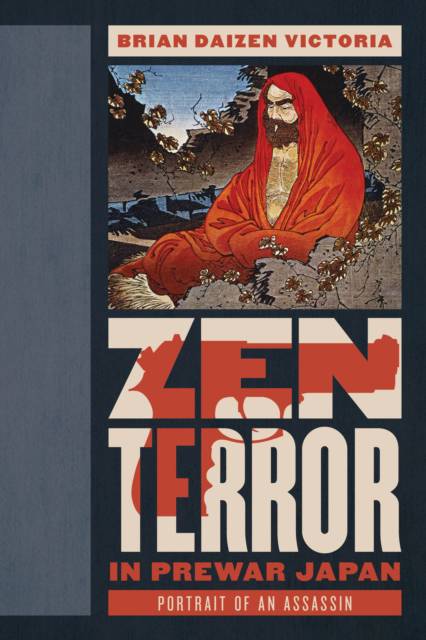
- Retrait gratuit dans votre magasin Club
- 7.000.000 titres dans notre catalogue
- Payer en toute sécurité
- Toujours un magasin près de chez vous
- Retrait gratuit dans votre magasin Club
- 7.000.0000 titres dans notre catalogue
- Payer en toute sécurité
- Toujours un magasin près de chez vous
Description
Written by a Zen priest, this book explodes the myth of Zen Buddhism as a peaceful religion. Can Buddhism, widely regarded as a religion of peace, also contribute to acts of terrorism? Through an insider's view of right-wing ultranationalism in prewar Japan, this powerful book follows a band of Zen Buddhist-trained adherents who ardently believed so. Brian Victoria, himself a Zen priest, tells the story of a group of terrorists who were responsible for the assassination of three leading political and economic figures in 1932. Victoria provides a detailed introduction to the religious as well as political significance of the group's terrorist beliefs and acts, focusing especially on the life and times of the band's leader, Inoue Nisshō. A deeply troubled youth, Inoue became a spy in Manchuria for the Japanese Army in 1909, where he encountered Zen for the first time. When he returned to Japan in 1921, he determined to resolve his deep spiritual discontent through meditation practice, which culminated in an enlightenment experience that resolved his long-term doubts.After engaging in "post-enlightenment training" under the guidance of Rinzai Zen master Yamamoto Gempō, Inoue began a program of training the "patriotic youth" who formed the nucleus of his terrorist band. After the assassinations, Inoue and his band were sentenced to life imprisonment, only to be released just a few years later in 1940. Almost unbelievably, Inoue then became the live-in confidant of Prime Minister Konoe Fumimaro, a position he held through the end of WWII. In the postwar era, Inoue reinvented himself again as the founder and head of yet another band of ultranationalists known as the "National Protection Corps." His eventful life came to an end in 1967. Victoria concludes with an assessment of the profound impact of the assassinations, which culminated in Japan's transformation into a totalitarian state and set the stage for Pearl Harbor. The author also examines the connection of Buddhism to terrorism more broadly, considering the implications for today's Islamic-related terrorism.
Spécifications
Parties prenantes
- Auteur(s) :
- Editeur:
Contenu
- Nombre de pages :
- 392
- Langue:
- Anglais
- Collection :
Caractéristiques
- EAN:
- 9781538131664
- Date de parution :
- 14-02-20
- Format:
- Livre relié
- Format numérique:
- Genaaid
- Dimensions :
- 157 mm x 229 mm
- Poids :
- 635 g

Les avis
Nous publions uniquement les avis qui respectent les conditions requises. Consultez nos conditions pour les avis.






